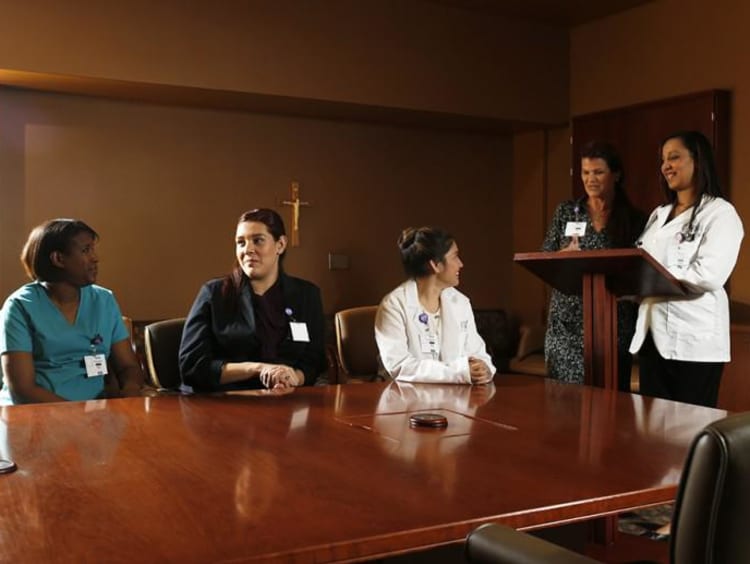Lessons from the College of Nursing and Health Care Professions

Most days I stand in front of Christian worldview classes and teach a course that students from every major in our university are required to pass.
This afternoon, I sat in a classroom at our College of Nursing and Health Care Professions, in the role of Dad. My daughter, Katie, has completed all of her prerequisites, and I went to support and see where she will spend most her time for the next 16 months.
Our College of Nursing and Health Care Professions integrates faith and learning. The session started with prayer; several senior students spoke about how the support and prayer of fellow students had buoyed them in times of stress and self-doubt, and there were unapologetic affirmations of God’s place in the profession.
I was struck deeply, though, as the director and lead faculty member shared some advice for nursing students that was equally appropriate for future ministers, missionaries and other theologians.
- From your first day of class, you are on a job interview. Theology students would be well advised to remember that the habits and attitudes developed in the classroom, will carry over to ministry. The Gospels give us a glimpse at the theological education of the disciples – their victories and the sometimes troubling and off-the-mark conclusions.
- Ask, “What can I do? What can I learn?” The advice to nurses is that in a clinical setting, they should find ways to help and to ask questions. A theology student must do the same. The example of Jesus was that “He went around doing good” (Acts 10:38). That is no small example for those who call themselves His followers. Further, there are important questions that need to be asked. We encourage students to study Greek and Hebrew, for example, so that they might possess the tools to understand deeper questions.
- We are strict about things that might not seem important right now because let’s face it: Things can get messy. The context of the statement was that fingernail polish can hide bacteria, shoes must be leather and hair must be neatly out of the way. While the messes faced by nursing students are different than the messes faced by ministers, the fact remains that safeguards are necessary. Students of theology might find it quirky that their instructors and mentors feel it necessary to discuss accountability, boundaries and pastoral ethics, but we minister in a fallen world. While messes must be addressed, they must be addressed with great care, lest the healer becomes the patient.
- Our program is rigorous because, in the end, you are responsible for people’s lives. It would be simplistic to think that nurses are responsible for people’s lives, but ministers are responsible for their souls. The fact is that our nursing students learn the Christian worldview and are trained in spiritual aspects of health care. They have the tools to impact people for eternity and many do just that. I would remind theology students, however, that they are not just dealing with the eternal, but that interacting in the lives of people can change the quality of this
The Gospel is transformational for the soul, the family, and society. It is encouraging to remember that God is at work in the lives of all those who call upon His name, be they nurses who minister to the sick, engineers who develop systems of clean water and sanitation, teachers who educate children, godly business people who provide employment or, yes, those trained specifically in the Bible and theology, and who keep others trained and pointed toward the things of God.
Keep reading! We invite you to check out the new College of Nursing and Health Care Professions’ blog, Health and Wellness with Purpose.
The views and opinions expressed in this article are those of the author’s and do not necessarily reflect the official policy or position of Grand Canyon University. Any sources cited were accurate as of the publish date.


